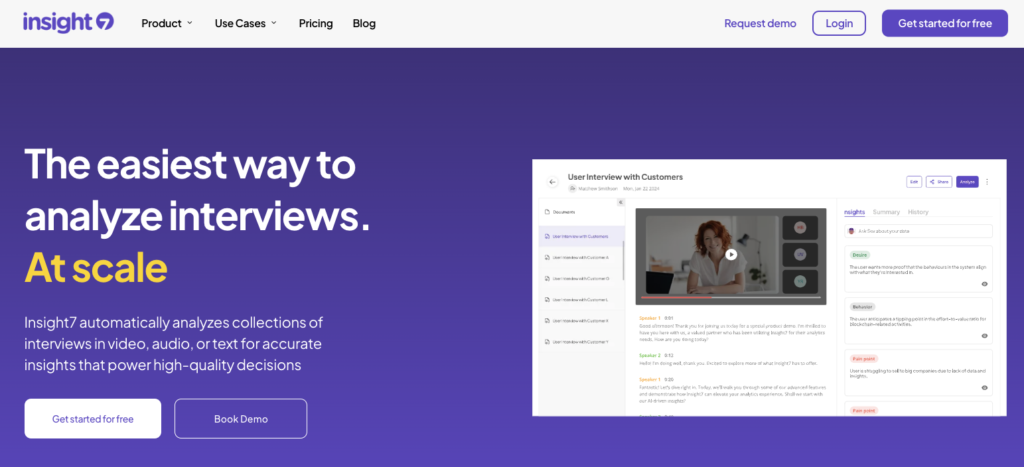In the world of B2B marketing, understanding your customer is paramount to success. One of the most effective ways to gain this understanding is through the creation of buyer personas. With the advent of artificial intelligence (AI), the process of generating these personas has become more precise and data-driven. In this post, we will explore five exemplary cases where AI has been used to create buyer personas in the B2B sector, showcasing how technology can enhance our insights into customer behavior and preferences.
AI-Generated Buyer Personas: A Game Changer for B2B Marketing
The integration of AI into marketing strategies has revolutionized the way organizations approach their target audience. By leveraging machine learning and data analytics, AI tools can process vast amounts of information to identify patterns and characteristics that define the ideal customer. This capability is particularly advantageous in the B2B realm, where the buying process is often more complex and involves multiple stakeholders.
Example 1: Tech Solutions Inc.
Tech Solutions Inc., a leading software provider for businesses, utilized an AI buyer persona generator to redefine their marketing strategy. The AI analyzed customer data from various touchpoints and identified four distinct personas that represented their client base. These personas included the ‘Innovative IT Manager,’ the ‘Cost-Conscious CFO,’ the ‘Risk-Averse CEO,’ and the ‘Tech-Savvy CTO.’ Each persona was equipped with detailed descriptions of their motivations, pain points, and preferred communication channels, enabling Tech Solutions Inc. to tailor their messaging and product development accordingly.
Example 2: MedEquip Corp.
In the healthcare equipment industry, MedEquip Corp. faced the challenge of understanding the diverse needs of their clients. By employing an AI-generated buyer persona tool, they were able to segment their market into specific personas such as the ‘Patient-Centric Hospital Administrator’ and the ‘Efficiency-Focused Clinic Manager.’ This segmentation allowed for more targeted marketing campaigns and product features that catered to the unique requirements of each group.
Example 3: EduTech Innovations
EduTech Innovations, a provider of educational technology solutions, implemented AI to create buyer personas for their K-12 and higher education markets. The AI’s deep learning algorithms processed data from school administrators, teachers, and IT staff to form personas like the ‘Curriculum Developer’ and the ‘Digital Learning Advocate.’ These personas helped EduTech Innovations to understand the specific needs of their end-users and to design products that enhanced the educational experience.
Example 4: GreenBuild Materials
In the sustainable building materials sector, GreenBuild Materials used AI to craft buyer personas that reflected the growing trend towards environmentally friendly construction. The AI tool identified personas such as the ‘Eco-Conscious Architect’ and the ‘Green Project Manager,’ both of whom prioritize sustainability in their projects. With this information, GreenBuild Materials was able to focus their R&D efforts on creating eco-friendly products that appealed to their target personas.
Example 5: FinTech Global
Lastly, FinTech Global, a financial technology firm, turned to AI to understand the different stakeholders involved in the decision-making process of their corporate clients. The AI-generated personas included the ‘Data-Driven Financial Analyst’ and the ‘Strategic Business Developer.’ These insights allowed FinTech Global to develop solutions that addressed the specific challenges and opportunities within the financial sector.
Conclusion
The examples provided demonstrate the power of AI in creating detailed and actionable buyer personas for B2B companies. By harnessing the capabilities of AI, businesses can gain a deeper understanding of their customers, leading to more effective marketing strategies and product offerings. As AI technology continues to advance, we can expect even more sophisticated persona generation, further bridging the gap between businesses and their clients.
For organizations looking to implement AI in their marketing efforts, these examples serve as a testament to the value that AI-generated buyer personas can bring to the table. By prioritizing the creation of accurate and insightful personas, B2B marketers can ensure that their products and services resonate with the right audience, ultimately driving growth and success in an increasingly competitive marketplace.




